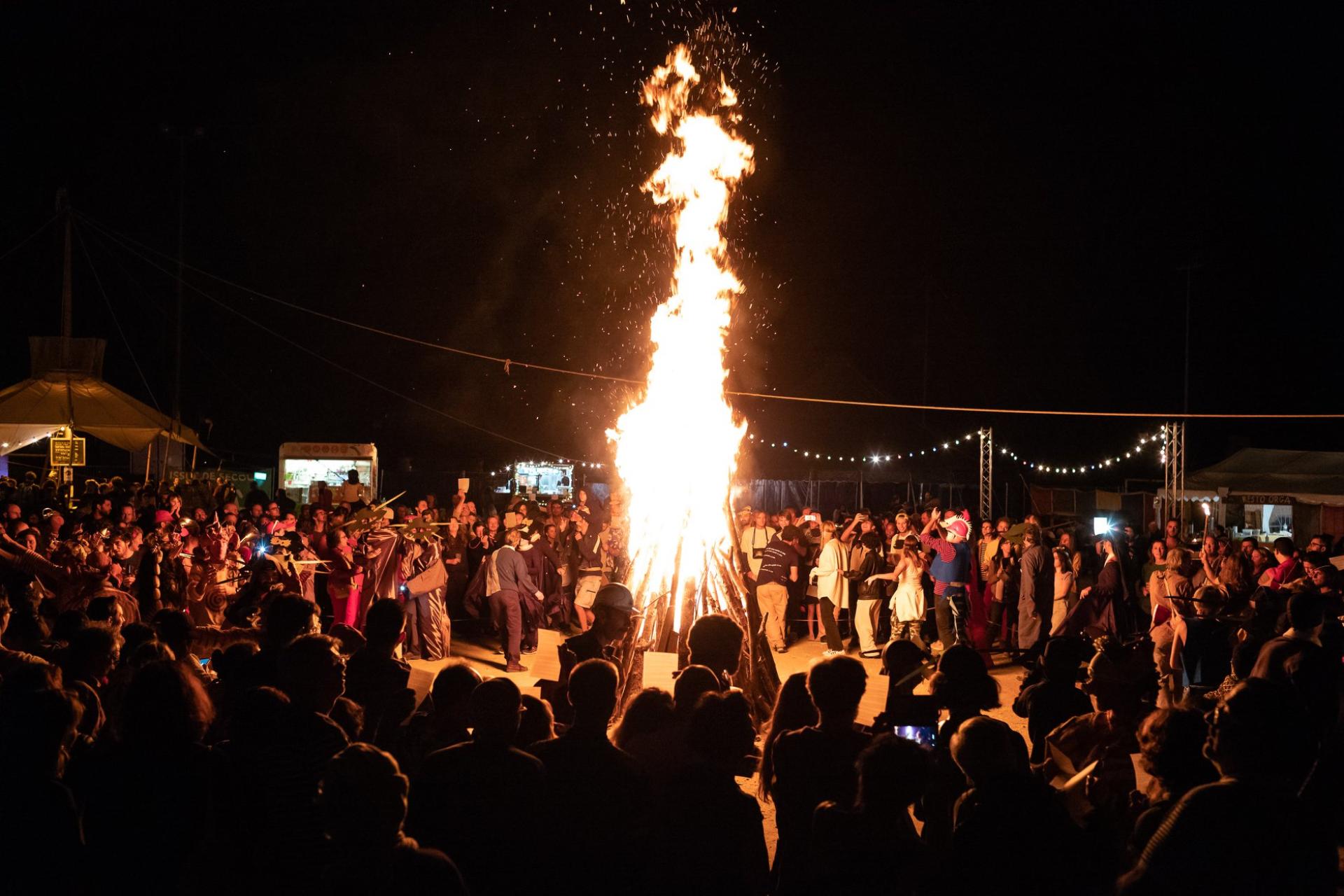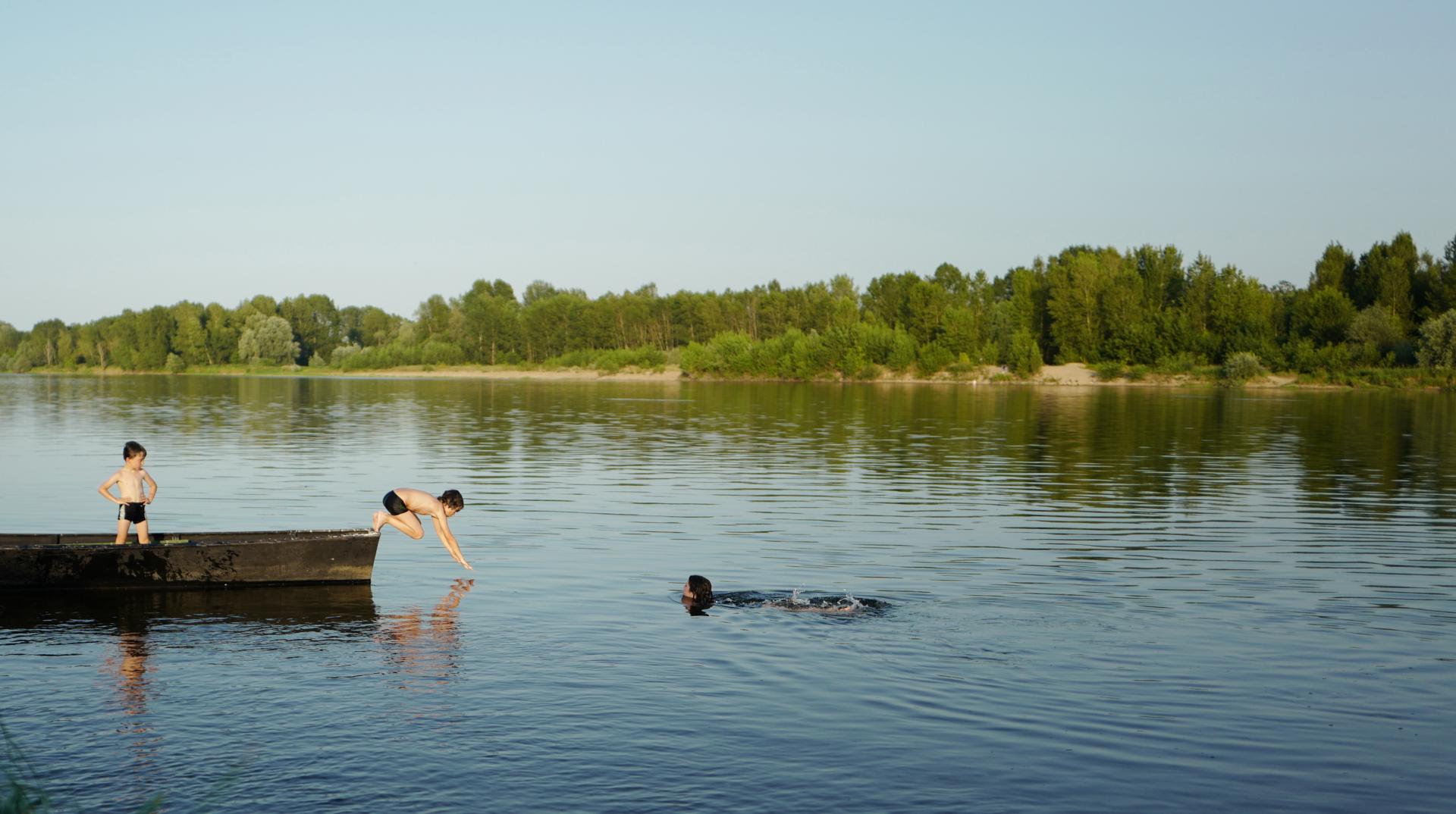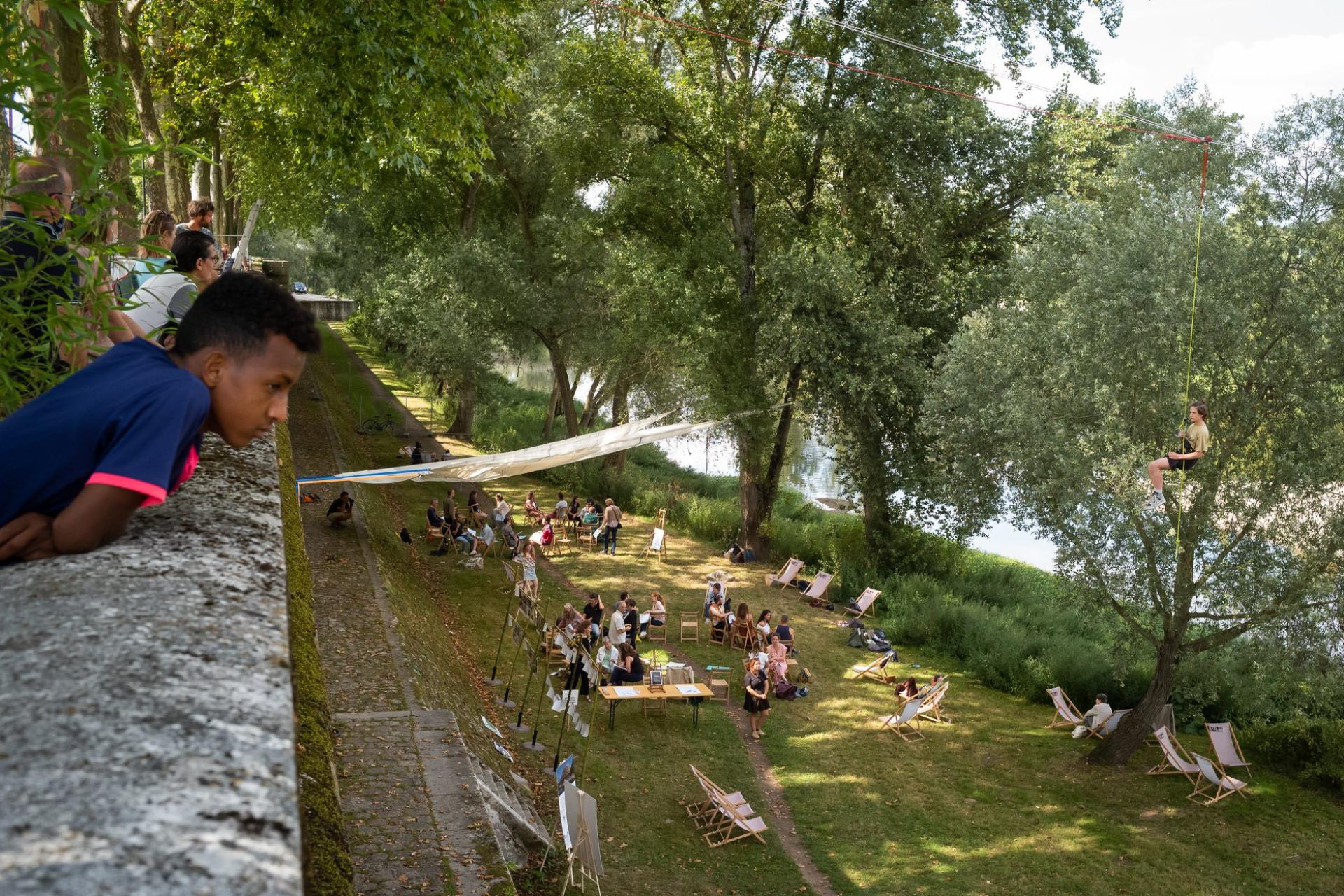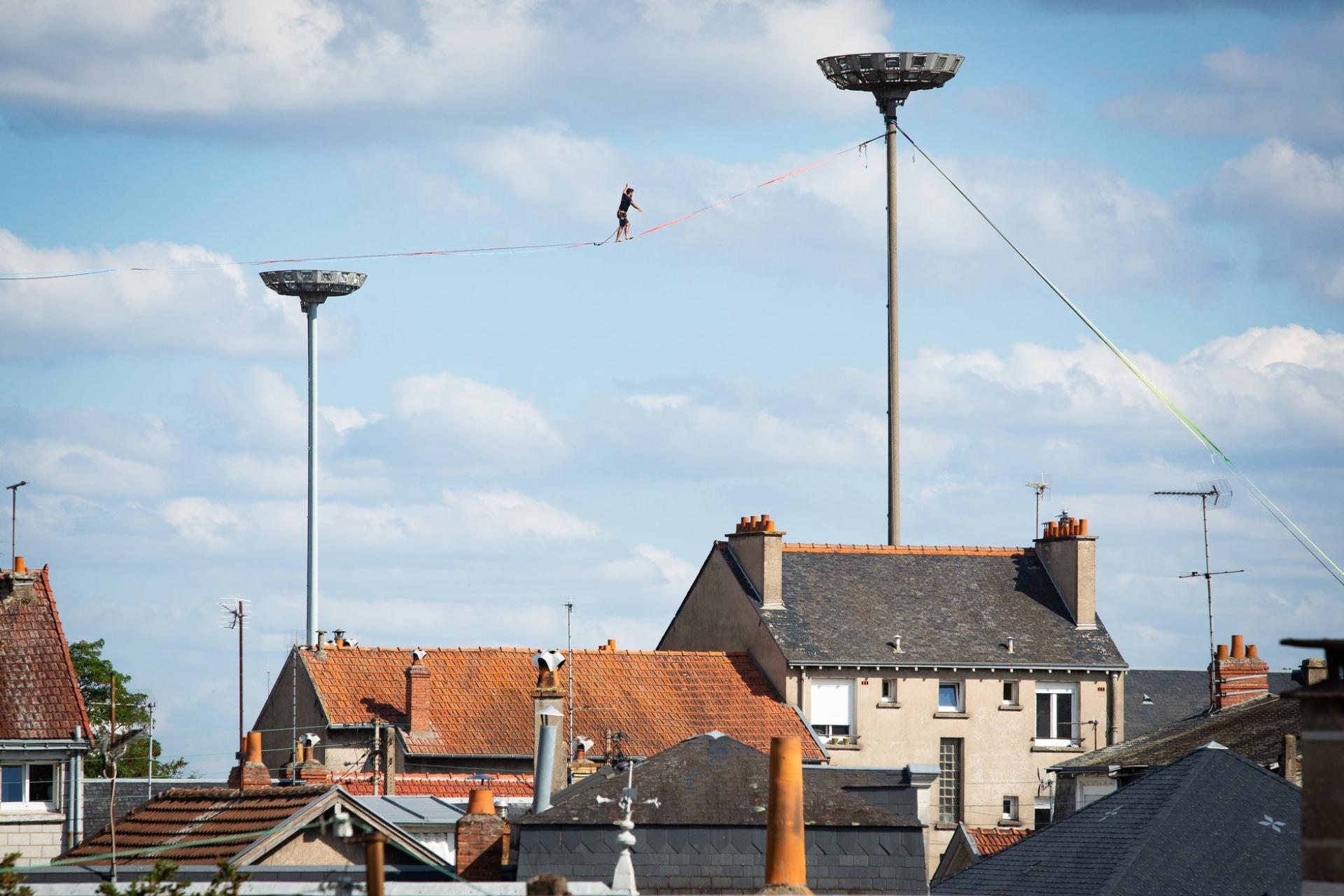Le parlement de Loire
Basic information
Project Title
Full project title
Category
Project Description
How about a parliament for the river ?
This is the unifying idea behind the Loire parliament approach. For the past 3 years, POLAU organized hearings (led by Camille de Toledo, writer), public events, arts&sciences residencies to imagine a fictitious institution representing both humans and non-humans.
This pioneer initiative involves a large community to the river’s stakes, to a legal status for elements of nature. It participates in turning around methods of territorial engineering.
Geographical Scope
Project Region
Urban or rural issues
Physical or other transformations
EU Programme or fund
Which funds
Description of the project
Summary
POLAU-pôle arts & urbanisme is a French organisation that draws on the methods of artistic creation to help shape territories. It is based in Tours, a city built around the Loire, the last wild river in Europe.
Loire is a daily reminder that we belong to a living landscape and a beacon for climatic upheavals: it is a free element running through our region, escaping human control and keeping us aware of the state of the world. It raises many concerns about the decline in natural flows, the risk of flooding, excessive pumping and the decline in biodiversity.
In 2019, inspired by the reflections of Bruno Latour and by the recognition of the legal personality of the Whanganui River in New Zealand (2017), POLAU initiated a fictional institution asking “How about a parliament for the Loire?”.
During an innovative series of public hearings (2019-2020), POLAU and associated writer Camille de Toledo developed a territorial experiment at the interface between law, anthropology, arts and politics. What if the River Loire could testify to the damage it has suffered? Envisaging this type of institution implies a reversal of perspective, a gamble on ecocentrism, to lay the foundations for the ecological transition.
This work, which uses a sensory approach to deal with complex technical subjects, has been published in a book entitled Le Fleuve qui voulait écrire, forming the conceptual basis for a broader approach on the scale of the river basin.
A series of partners have gradually joined the initiative: UNESCO, universities, boat masters, artists, local authorities and residents. Together, they came up with a federating event, the Assemblées de Loire, held from 9-12 September 2021. Over four days, more than 200 artists, scientists and lawyers gathered at around fifteen venues in Tours to put forward formats for experimenting new relationships with Loire.
This territorial partnership creates a framework for cooperation to shape a common culture around transitions.
Key objectives for sustainability
This project epitomises the desire of a region to tackle the ecological urgency collectively, to define its broad outlines by building up cross-disciplinary knowledge in order to envision a sustainable and desirable future.
Build a common knowledge based on ecological disruptions
A Loire parliament Information Commission led a public enquiry in the name of the river. This involved a collective effort to understand how the Loire ecosystem functions, the threats it faces, the complexity of its uses and governance.
This approach brings enchantment to the technical themes that are key to understanding the Anthropocene:
- Relationship between human societies & ecosystems (Latour, Ait-Touati|2019)
- Legal instruments designed to protect nature’s entities and prospective approaches (legal animism, etc.) (Cabanes; Hermitte|2020)
- Biological functioning of a hydro-system (Boisneau |2019)
- Water governance (Bouleau |2020)
Raise citizens’ awareness of their interdependence with the Loire
POLAU puts emphasis on creating a common culture around the river and strives to place issues on the local and national media agenda. It promotes the lessons learned on a national scale: book; column “Towards a Loire parliament” in newspaper Le Monde | 09/2021; national radio shows; work with the local authorities | 2022. See Press review.
Promote sustainable economic activities
Each of these events reflected, in technical terms, the themes it addresses: waste collection workshops, frugality, reusable materials, and the facilitation of public transport.
This narrative has also promoted sustainable local economic activities:
- local products and from responsible fishing | flea market – 09/21
- Structuring new local craft activities:
- Tanning of catfish skin caught in the River | 09/21
- Building using renewable materials & construction waste |Muemosa, mosaicists; Stadler architects – 09/21
- Promoting eco-responsible tourism: Loire parliament itinerary, inland waterways
Key objectives for aesthetics and quality
The Loire parliament calls for “useful art” (Zhong), art with transformative effect on complex everyday realities in the context of climate change and the political inadequacies in responding.
Develop artistic forms that are relevant to current political issues
Writer Camille de Toledo coordinated twelve public hearings, taking the form of both a game and a performance. He tasked a fictious commission with imagining a new institution with non-humans.
Les assemblées de Loire, a transdisciplinary event gathered a variety of proposals inspired by the river never previously presented: a public display of hand-painted landscapes (Offard – Loirama| 09/2021), a land art walk (Zazü|09/2021), an exhibition on the rights of rivers (CCC OD |09/2021), performances by Mathieu Duperrex, films...
Encourage the emergence of new representations of the hydro-system
The Loire parliament offers transformative experiences to give greater consideration to the river and share knowledge.
- Bivouacs and walkthrough landscapes to experience the environment (Rabouilleuse | 05/2021; University of Tours |11/09/2021)
- Listening sessions - sounds of Loire (Jollivet, audio-naturalist | 12/2019, 09/2021)
- Eco-psychology sessions to strengthen our emotional bond with the living environment (Joubert, sylvotherapist | 17/10/2020)
Produce works that inspire territorial engineering
Solutions to the area’s problems can be imagined through fiction as a performative spring for action and practical proposals (political representation of non-humans, rights of the river).
Restorative justice circles (11/09/2021) in which volunteers played a stakeholder in the Loire explored other ways of resolving conflicts involving the river.
These fictional methods inspired territorial operators, transferring methodologies to urban planning:
- The Tours urban planning agency conducts an investigation on river bathing before reconsidering its re-authorisation with regard to the ecosystem’s interests
Key objectives for inclusion
The creative and open formats making up the Loire parliament approach helped reaching out to different types of audiences, raising visibility of the river’s challenges and initiating processes for collective action.
Address a wide and varied audience
To reach a spontaneous audience of several thousand people, events were held in public spaces including a place between two towns, on the Loire biking itinerary.
- Students (academic works:Design Schools Tours, Orléans, Architecture Paris Belleville, Urban school of Lyon)
- School groups (Loire animal masks (UNESCO); mash-up table, farm...)
- Training workshops (catfish skin tanning – 10 women over 1 week)
- Families (zip-line over the Loire, Loire maker game)
- People in need (banquet for the homeless & Afghan migrants | Convergence Bio 09/2021)
- Unaccompanied minors (postcard exhibition Guétemme & Apprentis d’Auteuil|09/2021)
- General public (whitewater swimming, tightrope show | Théo Sanson)
Events were accessible to PRM and streamed on social media.
Renew the forums for discussion around water management and citizen participation
The narrative provided the basis for study days on the rights of nature with project leaders, activists and representatives from local authorities coming together to share good practices and tools.
- Guardian of nature tools (International lawyer Marine Calmet) mixing legal and sensory aspects.
- Scenographic installation in the streets (artist Zazü) to gather attachments to the Loire based on a collect (Ligere |09/2021)
- Walk along La Bédoire river (Rabouilleuse|05/2021), participants’ expectations were compiled to feed into the public consultation on the water management plan
Encourage practical actions
- Column Le Monde written by citizens, local stakeholders, researchers and artists, towards a Declaration of rights of the River Loire
- Litter clean-up walk along the banks of the Loire with the Clean Walkers
- Debate “direct action to raise awareness of pollution” (Mele)
Results in relation to category
Moving away from an anthropocentric view to an ecocentric view is central to the Loire parliament approach (listening to nature, understanding its voices and translating this non-verbal language).
The common thread underlying the approach is the shift in methodology used for the public hearings, and the creation of some twenty immersion, observation and listening mechanisms for the river.
The narrative facilitates concerted action of local stakeholders
- Collectives have been keen to contribute on the state of the river (gathering attachments|since 2019)
- academic organisations have seen an opportunity to overhaul the way they disseminate knowledge (University of Tours | since 2021; Popular University of Tours | since 2020)
A change of practices on a territorial scale
The Loire parliament’s approach has contributed to a renewal of practices among the local stakeholders:
- UNESCO site responsible for promoting the Loire, is making use of the Loire parliament narrative to reconsider the concept of natural heritage
- The Tours urban planning agency is conducting a study into the advisability of reauthorising bathing in the Loire (2022)
A potential for inspiration and mobilisation
This contextual narrative is cited as inspiration for initiatives, works and creative projects:
- experiments in eco-psychology (Lichen project)
- poetic-scientific drift down the river on a raft (les Etres Loire)
- a public display of a panoramic view of the Loire (Loirma)
- visual creation and live performance on the subject of attachments (Floriane Facchini, stage director)
It has helped structure an international network promoting the rights of nature: the Global Alliance for the Rights of Nature - co-organisation of the GARN’s first conference | 12/09/2021
It sparked growing interest as a subject of study in academics (LIGA design Orléans | 2020; Architecture Paris Belleville | 2021) or as a framework for the dissemination of knowledge (University of Tours | 2020-2021).
How Citizens benefit
The Loire parliament approach is the outcome of the meeting of a stakeholder in civil society, POLAU, a writer passionate about the relationship between humans and their ecosystem, Camille de Toledo, and the last wild river in Europe, Loire.
The territory has tasked an information commission set in civil society to lead an investigation, as it questions the relevance, form, methods of creation and functioning of this potential institution. The citizen-based approach is therefore central to the project.
At each hearing, the public was invited to contribute to the debate by putting forward topics and avenues for reflection, but also ways of representing the river. To provide input for the information commission, ideas and suggestions could be sent in by email or via social media.
Several associations in the area have devised creative and participatory initiatives to collect the voices of the Loire and disseminate the approach’s values.
- Ligere: 400+ expressions of attachment gathered.
- Free speech walls have also been set up 300+ words, illustrations and ideas collected.
These contributions were then assembled and presented in the form of a media production.
Stakeholders from civil society (boatmasters, community colleges, cultural associations, GARN), more institutional operators (Région Centre, City of Tours council, University of Tours, Val de Loire Mission – UNESCO World Heritage, Urban Planning Agency, Contemporary Art Museum) and POLAU came together to put on a four-day programme of popular events last September. This boosted the citizens’ and civil society stakeholders’ desire to act, reinforcing the “bottom-up” aspect of this approach.
These partners are now taking the first steps towards the creation of a collective in 2022, aimed at taking this joint approach forward on the scale of the river basin (actions combining arts and sciences, research-action, dissemination of the methodology to various initiatives, specific forms of support).
Physical or other transformations
Innovative character
For the past 15 years, POLAU has been part of the development of “cultural urbanism”, a trend that brings together arts & planning to encourage creation in the public space, accompany urban transformations for more sustainable and liveable cities. Artistic tools are used in unusual registers: paradoxical systemic approach, temporary occupations, dramaturgy, creative consultations, research-action...
In this respect, the Loire parliament approach enhances the realm of territorial engineering & its traditional modes of operation. It is a manifesto for using culture to shape territories.
A different way of sharing local decision-making
The collective has developed its capacities on subjects concerning the recognition of living beings, the rights of nature, public policies, gradually establishing itself as a capable of speaking out & being recognised at the local level.
The proposals drawn up by the Loire parliament thus aim to negotiate with the living & open up forums for dialogue, rather than to impose planning policies.
Using fiction to bring together local stakeholders
For the fiction to work, it is vital that the public & various stakeholders adhere to the narrative: this makes it easier to introduce complex subjects, increases the project’s scale of action & its impact. The book is both a report on the hearings and a work of art. It provides the narrative thread and serves as a benchmark didactic resource.
Experimenting to promote territorial management
The method of focus switch constitutes a new tool for territorial design & a way of addressing topics such as riverbank development, flood management, renaturing, stationary projects for spaces, urban cooling…
Investigating a territory to better understand it
A fictitious parliamentary enquiry gets the territory involved in an exciting long-term investigation. It draws on initiatives combining arts & sciences that encourage stakeholders to learn from one another.
Learning transferred to other parties
The Loire parliament approach has sparked strong interest from several citizens’ collectives, researchers, journalists & local authorities, who have invited us in conferences, expressed their wish to join the approach, asked for support. The initiative is an interface between several topical issues encountered in many areas: climate change, biodiversity decline, renaturing cities, ecosystem imbalances, vulnerability of cities to natural risks…
Today, a growing number of citizens are taking up these issues (YouNGO, ZAD…) & challenging the principles of conventional, anthropocentric regional planning. Faced with the urgent need to act, our approach provides bottom-up frameworks for action and cooperation, a unifying narrative rather than an oppositional approach, a desirable horizon rather than collapse.
By drawing on the complementary nature of the values that make up the NEB triangle, some inspiring initiatives are emerging for the territories, & are worth disseminating as they facilitate mobilisation for transition and cooperation. As the process unfolded, a methodology has been developed:
- survey on the state of the environment and our attachments
- public hearings
- cross-fertilisation of knowledge
- sensory experiments
- exercises to translate the voices of the ecosystem
- federating events
- partnership dynamics
This methodology is replicable & adaptable. It echoes the methods developed by POLAU: use arts to re-equip territories plagued by complexity.
The Loire parliament approach is a pioneer in Europe. It brings together multiple voices drawing on an editorial base applying the notions of eco-fiction, the rights of nature & methodological role reversal to take action. The unconventional creative registers used here stimulate cognitive changes, trigger shifts in perspective& forge new connections. Subsequently, exciting initiatives such as Collapse of the Alps, the parliament of Soil, the Embassy of the North Sea, are on the rise.




